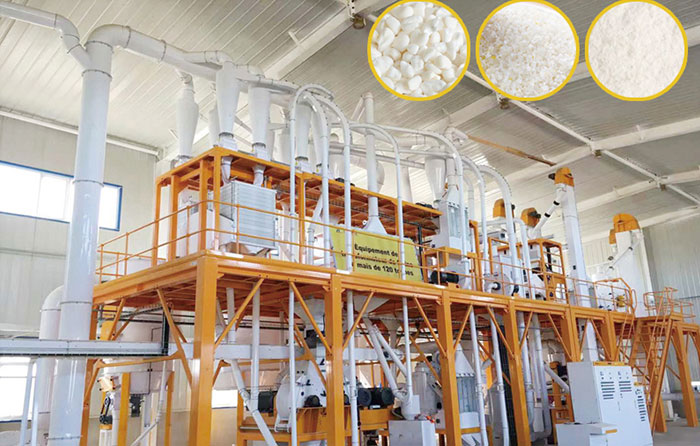Exploring Different Maize Flour Milling Machine Types and Their Applications
In the ever-evolving world of agriculture and food processing, the demand for efficient and versatile maize flour milling machine is on the rise. Maize, also known as corn, is a staple crop in many parts of the world, and its transformation into maize flour is a critical step in meeting the global demand for various food products. To understand the significance of maize flour milling machines, we must delve into the different types available and their wide-ranging applications.
The Versatility of Maize Flour
Maize flour derived from corn, is a fundamental ingredient in countless culinary traditions. It serves as the base for a wide array of dishes, from tortillas and cornbread to porridge and pancakes. Additionally, it is a vital component in the production of cornstarch, corn oil, and various other food products. The diversity of its applications underscores the importance of efficient maize flour milling machines.
Traditional Stone Mills
Key Characteristics
One of the most ancient methods of Maize milling machine involves the use of traditional stone mills. These mills are simple yet effective and consist of two large stones – one stationary and the other rotating. The maize kernels are placed between these stones and crushed to produce flour.
Applications
Traditional stone mills are still prevalent in some rural areas where access to modern machinery is limited. They are known for producing maize flour with a distinctive, rustic flavor. While these mills are not as efficient as their modern counterparts, they are a testament to the enduring traditions of maize processing.
Hammer Mills
Key Characteristics
Hammer mills are widely used in the milling industry for their high-speed operation and ability to crush maize kernels into fine flour. They are equipped with rows of hammers that rapidly beat the maize into a powdery consistency.
Applications
Hammer mills are highly versatile and can be used for various sizes of maize milling operations. They are efficient and suitable for large-scale maize flour production. These machines are also capable of handling other grains and cereals, making them a valuable asset for diversified milling.
Roller Mills
Key Characteristics
Roller mills are among the most advanced maize flour milling machines. They consist of two or more cylindrical rollers that crush maize kernels between them. The rollers can be adjusted to achieve the desired level of fineness.
Applications
Roller mills are the top choice for commercial maize flour production. They offer precise control over the milling process and are known for their consistency in producing high-quality flour. Many large-scale maize milling facilities rely on roller mills to meet the demand for maize flour.
Factors Influencing the Choice of Maize Flour Milling Machine
Selecting the right maize flour milling machine depends on various factors, including the scale of production, the desired flour quality, and available resources. When making this crucial decision, consider the following:
Scale of Production
For small-scale milling operations, traditional stone mills or hammer mills may suffice. However, for large-scale commercial production, roller mills are the preferred choice, given their efficiency and capacity.
Flour Quality
The type of machine you choose also affects the quality of the maize flour produced. Roller mills, with their precision and consistency, are the best option for obtaining high-quality flour. Hammer mills, while efficient, may produce coarser flour.
Available Resources
Consider the resources available to your milling operation. Traditional stone mills are relatively affordable and require minimal maintenance, making them suitable for areas with limited resources. On the other hand, modern machines like roller mills may require a more significant investment but offer long-term benefits.
Conclusion
The world of maize flour milling machines is vast and varied, with each type offering distinct advantages. Traditional stone mills, with their rustic charm, coexist with modern marvels like roller mills and versatile workhorses like hammer mills. The choice of which machine to use depends on the specific needs of your milling operation.
The quest for excellence in maize milling is an ongoing endeavor. Whether you aim to preserve tradition or embrace modern efficiency, the key lies in choosing the right flour milling machine for the job. In doing so, you ensure that this essential agricultural product continues to meet the diverse needs of consumers worldwide.



